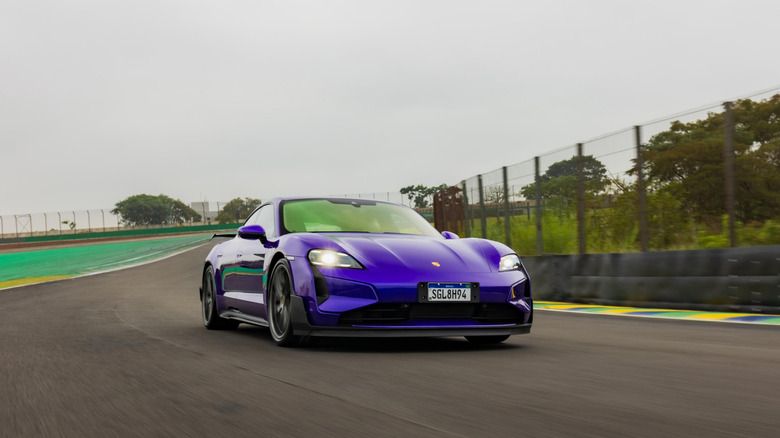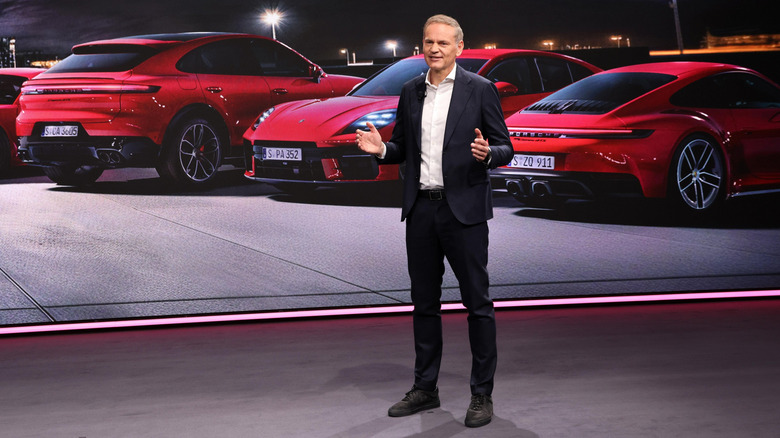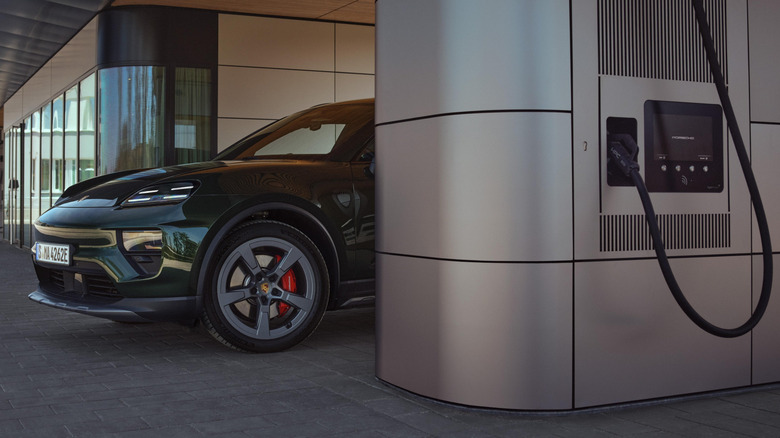Just a few years back, the common thinking in the auto industry was that if you were going to make and sell EVs, you should control your own battery production. Partnerships were OK — Tesla with Panasonic, GM with LG — but ultimately, the idea was that automakers wanted their own battery factories to avoid being dependent on a big supplier, such as China’s CATL. While the concept hasn’t been abandoned, carmakers are reassessing, as EV market growth has slowed. Meanwhile, niche efforts are looking less and less viable. Case in point: Porsche just announced that it’s winding down its high-performance battery factory in Germany and repurposing the division that oversaw it, called the Cellforce Group.
This sounds like bad news, but it isn’t. Cellforce’s goals were always relatively modest; Porsche described the plant as a “start-up factory” in a statement and said that the company always planned for an eventual increase in output at a second plant when EV demand accelerated. That trend hasn’t materialized, and Porsche is admitting that “due to a global lack of volumes, it is not possible to scale its own production to the planned cost position,” according to board member Michael Steiner. Why is this good news? It’s simple. Despite all the fretting about dependency on China, in the end batteries are batteries — a commodity business.
No need to support a battery niche
Porsche will be fine, even if 200 of 300 Cellforce workers will have to be repositioned. The factory in Germany was supposed to produce batteries for Taycans, and while Porsche likely has certain specific technical requirements for batteries intended to power go-fast machines, it’s better off collaborating with the likes of CATL at the level of design and engineering. Sinking scarce resources into new manufacturing capacity for what is currently a niche product – EVs that drive like sports cars and supercars – makes no business sense.
Porsche should focus instead on making sure that people still want to buy Porsches, both the ones that run on gas and the ones that are powered by electrons. The brand has a history of exceptional profitability, so as long as it executes, it will always have the money (within the Volkswagen Group) it needs to secure long-term battery capacity. We worry too much about geopolitics when it comes to stuff like this; CATL and other Asian battery suppliers are in the business of business, no matter who is in charge of various governments in the U.S. and Europe. Furthermore, the Apple model is worth considering here: Porsche can still innovate with high-performance battery design, even if it doesn’t own the means of production. That’s where the real value is, anyway. Manufacturing will probably become only marginally profitable as EVs become ubiquitous at some point in the future.
Porsche isn’t bailing on EVs
Porsche hasn’t abandoned its commitment to electrification, which is understandable because drivetrains that include electric technology deliver stupendous performance. Porsche needs to stay in that game. And the company intends to. “Electromobility will remain an essential drive technology for our sports cars in the future,” CEO Oliver Blume said in a statement. Plans for future EVs haven’t been jettisoned, suggesting that Porsche isn’t concerned about being about to get batteries that meet its expectations.
The industry overall doesn’t need these extraneous costs. It’s hard enough to build and sell cars. The distractions posed by spinning up charging networks and battery manufacturing, for companies that just a decade or so back never thought about these issues, are a drag on being able to successfully negotiate what’s turning out to be a bumpy combustion-to-EV transition. Porsche should be thankful that the marketplace has given it a good excuse to dodge the battery challenge and stick to what it does best.




